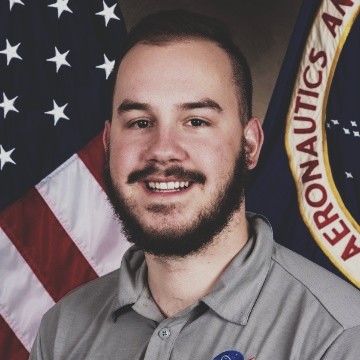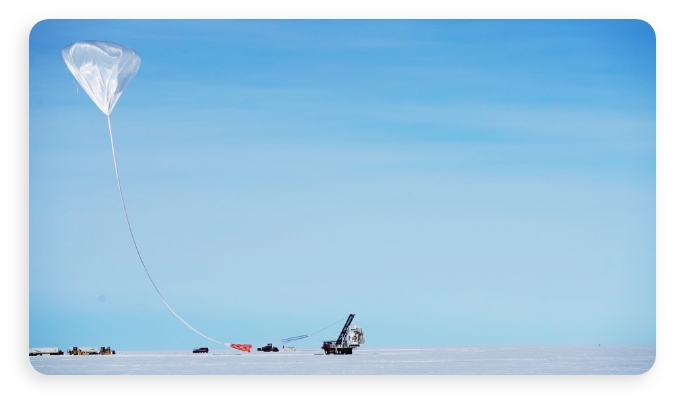Steerable high-altitude balloons (HABs) to collect higher fidelity in-situ atmospheric weather data.
Stratofly Research seeks to deploy autonomous constellations of our patent-pending altitude-controlled high-altitude balloons (HABs) to collect higher fidelity in-situ atmospheric weather data in data-sparse areas such as over oceans, to improve weather forecasting.
Two of the HABs we manufacture do not require a lighter-than-air, reducing cost and complexity. Altitude-controlled HABs can autonomously adjust altitude to “ride” opposing winds at different altitudes for station-keeping over regions of interest and performing trajectory maneuvers.
With a 10x cost savings compared with current larger altitude-controlled HABs, these small low-cost HABs allow customers to deploy constellations of smaller payloads in the stratosphere, rather than one primary payload.
The Problem
There is currently a lack of low-cost, easily-navigable access to the stratosphere and troposphere. Large (group 4&5) drones and manned aircraft are cost-efficient for long-duration high-altitude flights. Current altitude-controlled HABS are large and not easily accessible, complicating launch logistics for non-skilled operators and requiring significant volumes of LTA gas (helium shortage + rising prices, significant safety concerns with hydrogen). Without small to medium-sized altitude-controlled balloons, HAB constellations lack feasibility. HAB constellations can be used for Information,
Surveillance, and Reconnaissance (ISR) missions, communications nodes or relays, and in-situ high-fidelity weather monitoring. There is currently a major lack of in-situ meteorological data in the stratosphere over the oceans and in the southern hemisphere, where low-cost autonomous HAB constellations can fill the gap.
The Solution
Solar high-altitude balloons and a special type of high-performance hot air balloons utilize a lightweight envelope material with ideal optical properties for absorbing solar radiation, heating the air inside the HAB to generate lift. Similarly, IR balloons use a dual material construction to also absorb IR radiation emitted from the Earth and incorporate a heat-trapping layer to maintain flight at night. With our patent pending mechanical vent system added to these 2 types of HABs, we can precisely change altitude in the stratosphere. Altitude-controlled HABs can autonomously adjust altitude to “ride” opposing winds at different altitudes for station-keeping over regions of interest and performing trajectory maneuvers.
The Opportunity
The Weather Forecasting Industry is growing at a CAGR (compound annual growth rate) of 12% and is estimated to surpass $40 billion by 2040. Similarly, Unmanned Aerial Systems and Remote Sensing are also growing at CAGR above 10% and are estimated to surpass $55 billion each by the early 2030s. Most of the competition in the HAB sector produces large altitude-controlled zero-pressure and super-pressure balloons, typically for imagery. With a 10x cost savings compared with current larger altitude-controlled HABs, our small to medium-sized low-cost HABs allow customers to deploy constellations of smaller payloads in the stratosphere, rather than one primary payload.
Status
We are currently developing technology and processes for commercialization. This includes sourcing new heat-sealable materials for our SHAB and IR balloons to allow for semi-automated manufacturing of the balloons. Similarly, we are sourcing material vendors and equipment for semi-automated manufacturing of mechanical vents. By automating most of the manufacturing process, the HABS will be of higher quality and reliability, also higher performance, and capable of lifting heavier payloads than current prototypes.
Meet the Team

Tristan Schuler MS

Michael Debbins MS

Jekan Thanga PhD
College of Engineering

Steven Wood MS, MBA
Tech Launch Arizona
Contact us today.


